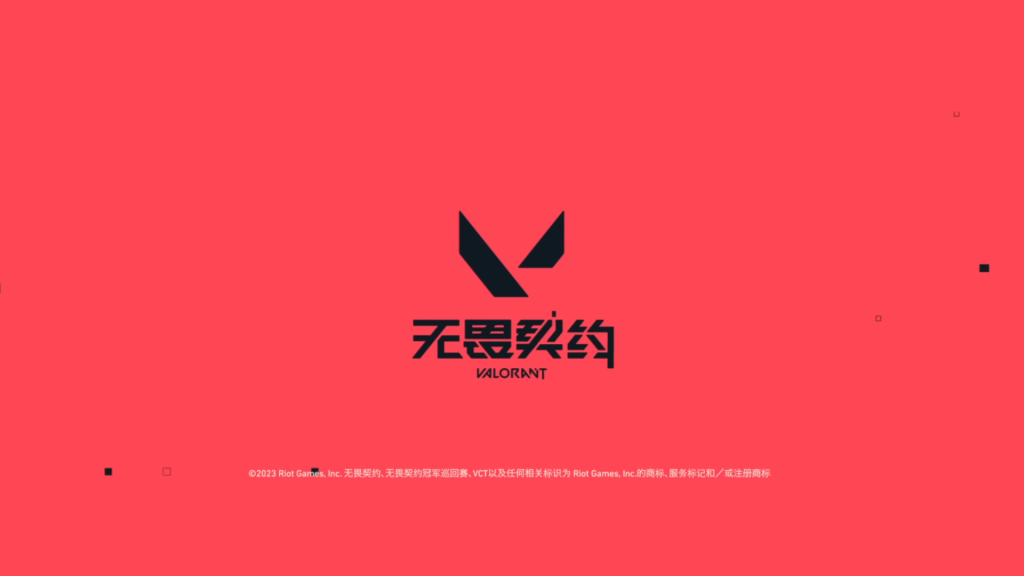
VALORANT, Riot Games’ first person shooter, officially launched in China on July 12th, bringing the developer’s polished mix of hero-based mechanics and strategic gunplay to esports’ largest market.
VALORANT launched globally in 2020 to much anticipation and fanfare — and successfully went on to steal fans, professional players and esports sponsors from its rivals, mainly CS:GO and Overwatch. The game cleverly sought to address some of the optics issues from which FPS esports like CS:GO suffer — realistic blood spatters are replaced by cartoonish graphics; terrorists and counter-terrorists by attackers and defenders; bombs by ‘spikes’. VALORANT is sleek, polished, inoffensive. It’s the excitement of an FPS with less of the baggage.
Perhaps it was these factors that gave Riot the confidence to successfully launch a truly global esports ecosystem. Its flagship esports circuit, VALORANT Champions Tour (VCT), is split into three comprehensive regions — Americas, EMEA and Pacific — with events spanning from Brazil to Japan to Turkey. Now, the game’s launch in China — and the country’s prospective incorporation into the VCT by 2024 — looks set to be a boost to both VALORANT as an esport, and the wider Chinese esports industry.
Notably, VALORANT comes online in the country just as Overwatch has been pulled from the market after a venomous breakdown in relations between Overwatch developer Blizzard and its Chinese distributor NetEase — opening up an opportunity for Riot’s game to flourish.
“The highly anticipated launch of VALORANT in China, already popular internationally, notably fills the void for Chinese PC gamers and esports enthusiasts left by the closure of Blizzard’s Overwatch, a similar title which had a large esports ecosystem in China,” Edward Tien, an analyst at market research firm Niko Partners, told Esports Insider.
VALORANT’s launch in China will also likely boost interest and viewership in the VCT, which, applying lessons it learnt from League of Legends, introduced a partner team model this year. 30 carefully vetted teams (split evenly between the three regions) were gifted permanent slots and lucrative revenue share via in-game item sales — warmly welcomed by cash-strapped esports organisations.
The broadening of the VCT to include Chinese teams may be a hint of a respective broadening of that partner programme.
China has the world’s largest esports market by both revenue and users, with 69% of PC gamers engaging with esports in some form, according to Niko Partners data. It’s no surprise, then, that Riot has committed to spending RMB 1bn (~£107m) over the next three years to build out VALORANT’s esports ecosystem in the country, according to Niko Partners and Chinese media reports. (Riot Games did not respond to a request for comment for this story).
“We’ve already started seeing Chinese esports organisations field esports teams both domestically and internationally,” Tien added. “Given these indicators, Niko Partners expects VALORANT to become a mainstay title in the FPS genre on PC in China, in the same way that CrossFire and CS:GO are.”
While there’s always been an appetite for FPS esports titles in China, outside of PUBG, domestic teams have generally struggled to be competitive on the world stage in mainstream FPS titles on PC.
Hudson Cao, Esports Manager at China-based sports consultancy Mailman Group, told Esports Insider via email that there is a huge fanbase for PC FPS’ in China, as evidenced by the popularity of PUBG, Overwatch and CS:GO. However, with few standout pro teams, there’s relatively weak interest in esports in those titles. VALORANT may change that.
“With its excellent game quality and the huge potential of the ecosystem, VALORANT lets us see that this market is crazy again for FPS,” Cao said. “With the help of Tencent’s huge user base, this will add a huge fan base to VALORANT’s already global esports audience.”
Indeed, the game launched to much domestic success. VALORANT was the second-most viewed PC game across major live streaming platforms in its first week, behind only League of Legends, according to data tracked by Niko Partners. Total viewers in its launch week were nearly 3x higher than rival CrossFire, which was the third-most watched title that week, Niko Partners found. The launch day saw such high demand and long queue times that Tencent had to publicly announce an increase in server capacity.
Unlike the global edition, VALORANT’s game client in China also has a built-in focus on esports, which will bring a further boost to the game’s ecosystem. The Chinese VALORANT client has a dedicated esports tab featuring highlights, match schedules and team information, according to several media reports and user social media posts.
The fact the game even received a licence to operate in the first place, after a long hiatus on foreign game approvals and other gaming restrictions by the Chinese government, has instilled optimism in the industry.
“As one of only a few games to get approved in recent years, the launch of VALORANT means that China is once again opening up game approval, which is a positive signal for international event companies and game publishers,” Mailman’s Cao said.
The official name of VALORANT in China is 无畏契约, which translates to ‘Fearless Contract’. Asked why, Cao said that while it doesn’t reflect the pronunciation of the word ‘VALORANT’, “the four-word name shares the meaning that the game is brave”. And it’s easy to see why it should be.
UPDATE 20/07/2023: This article was updated to include data on viewership performance of the game in its first week after launch.
